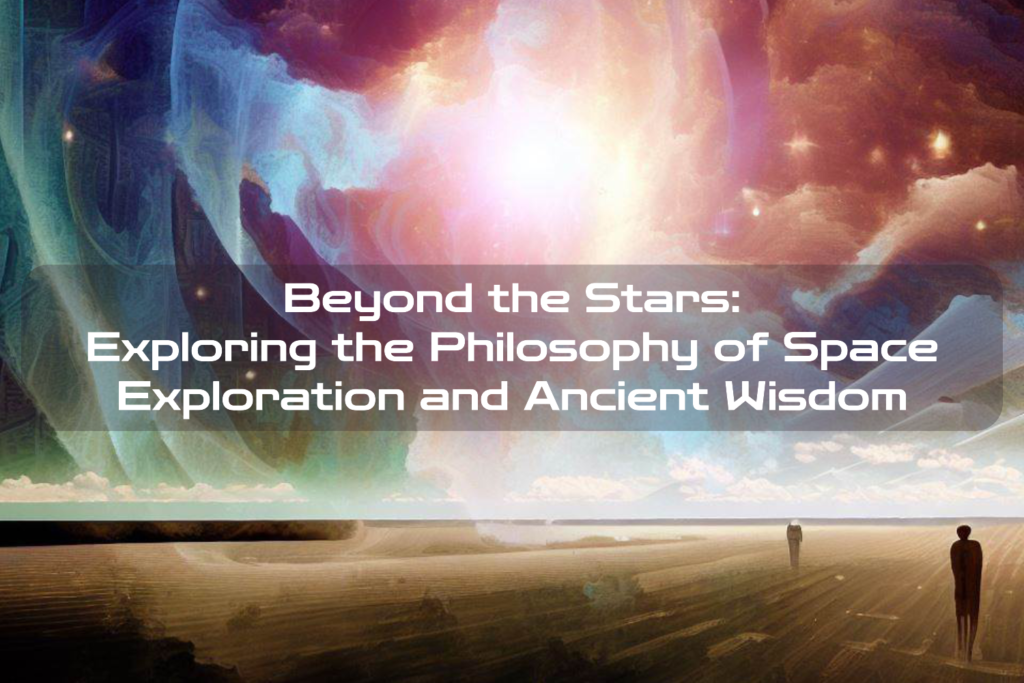The Philosophy of Space Exploration and Our Place in the Universe
Space exploration has been a fascinating subject for humans ever since we began looking up at the stars. The idea of exploring new worlds and uncovering the mysteries of our universe has captured our imaginations for centuries. But beyond just satisfying our curiosity, space exploration also has a profound impact on our understanding of ourselves and our place in the universe.
The philosophy behind space exploration is rooted in questions about the human condition:
Who are we?
Why are we here?
What is our purpose?
These are big questions that have been asked by philosophers, theologians, and scientists for millennia.
And as we continue to explore new frontiers in space, these questions become even more relevant. At its core, space exploration is about pushing boundaries and expanding our knowledge.
It’s about seeking out new challenges and discovering new possibilities. And through this process, we come to understand more about ourselves as individuals and as a species.
The Importance of Ancient Wisdom in Understanding Our Place in the Universe
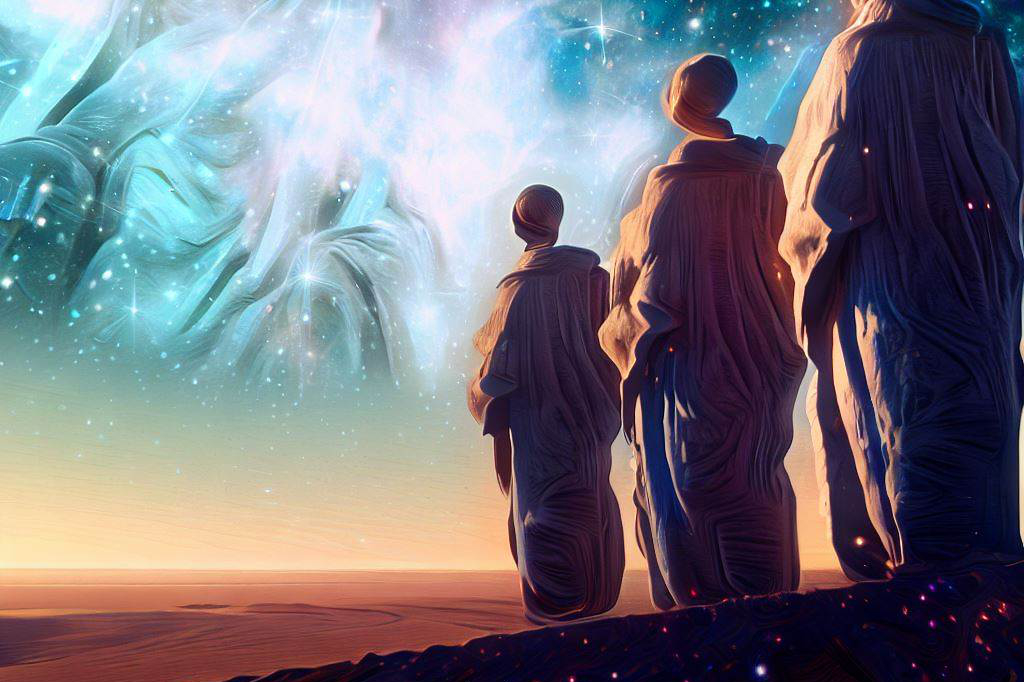
While modern science has given us incredible insights into the workings of the universe, it’s important not to forget the wisdom that came before us. Ancient philosophers and religious texts offer valuable insights into questions about existence, consciousness, and morality – all issues that are still relevant today. In fact, many ancient teachings align with modern scientific discoveries about the cosmos.
For example, ancient Hindu texts describe cycles of creation and destruction that align with current theories about how stars form and die. And Chinese philosophy emphasizes harmony between humans and nature – a concept that is becoming increasingly important as we grapple with issues like climate change.
By incorporating ancient wisdom into our understanding of space exploration, we can gain a deeper appreciation for both our own human experience and the vastness of the universe around us. Through this lens, space exploration becomes not just an endeavour to satisfy curiosity but a way to connect with something much greater than ourselves.
The Human Condition: What It Means to Be Human

What is the Human Condition?
The human condition refers to the fundamental nature of human existence, encompassing various aspects such as our physical, emotional, and intellectual experiences. It explores the nature of our being and how we relate to the world around us. The human condition is shaped by various factors such as
- culture,
- tradition,
- religion,
- and history.
Philosophers have long explored and debated what makes us human.
Is it our ability to reason?
Our capacity for emotions?
Our capacity for art and creativity?
Or is it simply our consciousness?
The answer remains elusive but understanding the concept of the human condition can provide insight into who we are and what we strive for.
How Space Exploration Enhances Our Understanding of Ourselves
Space exploration has been a fascinating area of research that has helped us understand ourselves better. Through space exploration efforts, we have developed new technologies that have led to numerous benefits in various fields such as medicine, telecommunications, and transportation.
But beyond these practical benefits lies an even more profound impact on how we see ourselves. Space exploration helps us understand our place in the universe.
It shows us that we are but a small part of something much larger than ourselves. The vastness of space makes us realize just how insignificant some of our problems can be in comparison.
We begin to question what it means to be alive on this planet with so much going on out there. Moreover, space exploration forces us to confront some of the biggest existential questions about life itself:
Are we alone in the universe?
If not, what does that mean for humanity’s place in it?
By exploring these questions through space exploration efforts and considering them from different philosophical perspectives through ancient wisdom teachings like Stoicism or Taoism – it’s possible that humans can develop a more profound understanding of themselves than ever before.
Ancient Wisdom: Lessons from Philosophy and Religion
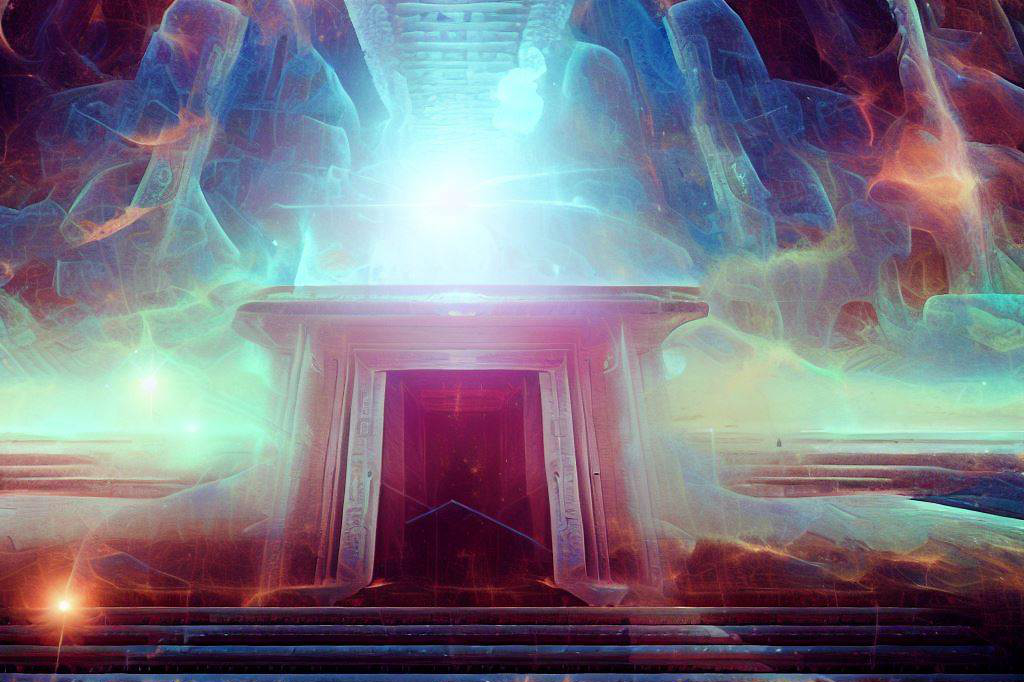
Exploring the Teachings of Our Ancestors
The teachings of ancient philosophy and religion may seem outdated to some, but they contain a wealth of knowledge that is still relevant today. Our ancestors grappled with questions about the meaning of life, our place in the universe, and what happens after we die. They didn’t have modern technology or scientific knowledge to help them find answers, so they turned to philosophy and religion for guidance.
One example of an ancient philosophical text that is still widely discussed today is Plato’s “Allegory of the Cave.” In this allegory, he argues that our perception of reality is limited by our senses and that we must actively seek knowledge if we want to truly understand the world around us. This idea can be applied to space exploration; as humans venture further into the unknown depths of space, we will have to rely on our ability to perceive reality beyond what we can see with our eyes.
The Relevance of Ancient Teachings Today
The teachings of ancient philosophy and religion are relevant not only in terms of their historical significance but also for their practical applications today. Many religions preach values such as compassion, humility, and inner peace, which can be applied in both personal and professional settings.
Philosophical concepts like ethical relativism or existentialism can help individuals navigate complex moral dilemmas or questions about their own existence. Moreover, exploring these texts highlights how little human nature has changed over time – even though technology has advanced significantly since then!
For example, Aristotle’s Nicomachean Ethics examines various moral theories like virtue ethics; these ideas are still relevant today!
Modern philosophy still grapples with similar problems that have been pondered by ancient philosophers – such as free will versus determinism or whether morality is objective or subjective.
A Treasure Trove of Wisdom
The philosophy and religion of the past may not provide us with the answers to all our questions, but they do offer a treasure trove of wisdom that can be applied to modern-day problems. By studying these ancient texts, we can gain insight into how our ancestors viewed themselves and their place in the world – which can help us better understand ourselves and our place in the universe.
Additionally, we can learn from their successes as well as their mistakes; for instance, some ancient religious practices may seem outdated or cruel by today’s standards; others contain valuable insights into how we might live more fulfilling lives. Ultimately, it is up to each individual to decide what lessons they wish to take from ancient wisdom – but there is no doubt that these teachings are still relevant today!
Space Exploration: A Modern Quest for Meaning
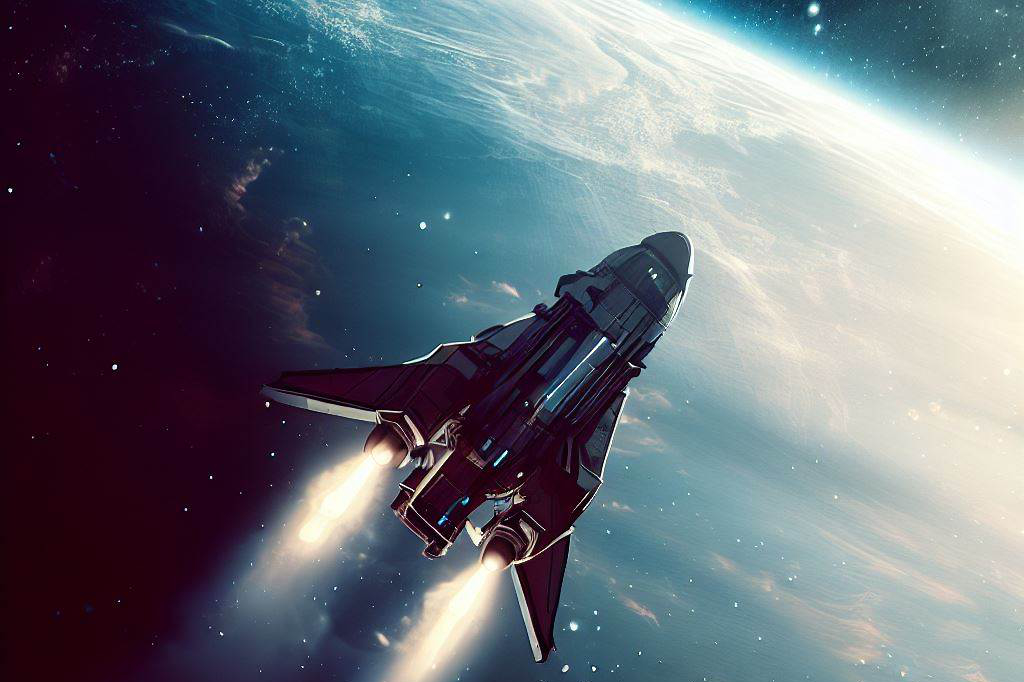
Examining the Connection Between Space Exploration and Ancient Philosophies
In recent years, space exploration has captured the imagination of people all over the world. From Elon Musk’s SpaceX to NASA’s groundbreaking missions, there is a renewed sense of excitement around space exploration. But what is driving this quest to explore the cosmos?
Is it just a desire to learn more about our universe, or is there something deeper at work? One way to think about space exploration is as a modern quest for meaning.
The search for knowledge and understanding has always been at the heart of human endeavors – from philosophy to religion – and now it extends beyond our planet. This search for meaning connects us with ancient philosophies that also grappled with questions of existence, purpose, and identity.
The Importance of Space Exploration in Understanding Ourselves
Space exploration provides us with an opportunity to gain insights into ourselves as a species. Studying other planets can help us better understand our own origins and evolution.
For example, by studying Mars, we can learn more about how planets form and what conditions are necessary for life to exist. This knowledge could help us answer some of the most fundamental questions about who we are and where we came from.
Moreover, exploring space can inspire us in ways that go beyond just scientific discovery. The beauty and wonder of the universe can ignite our imaginations and create a sense of awe that reminds us of our place in something larger than ourselves.
The Connection Between Modern Science And Ancient Wisdom
Despite existing centuries apart from one another, there is an undeniable connection between modern science and ancient wisdom traditions.
The scientific method itself relies on principles such as
- observation,
- experimentation,
- skepticism,
- curiosity
that have roots in philosophical inquiry going back thousands of years.
Moreover, many ancient philosophical texts, such as Stoicism and Buddhism, contain ideas that remain relevant today in the context of space exploration.
For example, Stoicism teaches us about the importance of embracing uncertainty and cultivating a sense of inner strength to persevere through adversity, while Buddhism encourages us to develop compassion and interconnectedness with other forms of life.
Space exploration is not just a scientific pursuit but also an existential one. By examining our place in the universe and gaining a new perspective on the cosmos, we can find meaning and insight into our own existence.
Through this modern quest for knowledge, we are connecting with ancient wisdom teachings that have long sought answers to these same questions. Together, science and philosophy can help us better understand ourselves as individuals and as a species, leading to a brighter future for all of humanity.
The Search for Extraterrestrial Life: Implications for Humanity
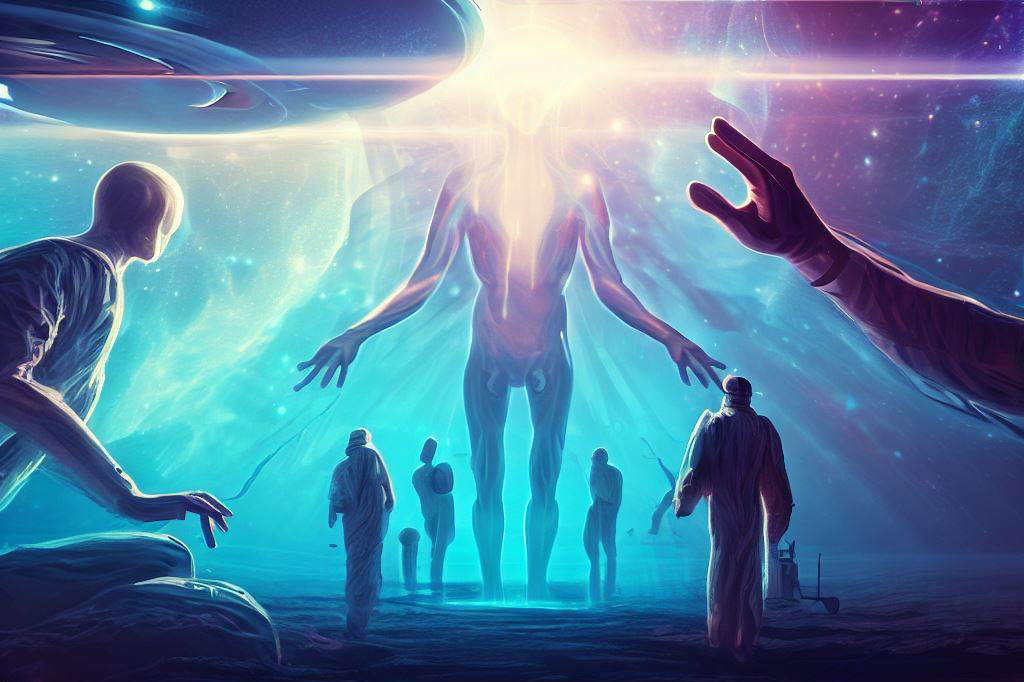
Looking Beyond Earth’s Borders
The search for extraterrestrial life has been a fascination for humanity since we first gazed up at the stars. With advancements in technology, we have now explored our own solar system and beyond, seeking out clues that may indicate the presence of life elsewhere in the universe. This quest holds immense implications for humanity as we consider what it means to be human in a universe that may contain other intelligent life forms.
What Extraterrestrial Life Reveals About Us
The search for extraterrestrial life not only opens up new possibilities and questions about life outside Earth but also provides insight into our own existence. It challenges us to examine what it means to be human, our place in the universe, and how we relate to other species. The possibility of discovering intelligent life beyond Earth could challenge our assumptions about ourselves and force us to re-evaluate our beliefs about our place in the cosmos.
The Human Condition in a Universe with Other Intelligent Life Forms
The discovery of intelligent extraterrestrial life would transform how humans perceive themselves. It would require us to reconsider our role in the universe and how we interact with other beings. We would need to navigate complex ethical questions about communication, cultural differences, and even potential conflicts with these newfound species.
Furthermore, finding extraterrestrial intelligence could challenge religious beliefs that humans are unique creations of a divine being or challenge philosophical notions that define humans as superior beings on this planet. Ultimately, discovering intelligent alien species would force us to confront difficult questions about who we are as a species and what it means to be human in relation to others.
The search for extraterrestrial life holds immense implications for humanity’s understanding of ourselves and our place in the universe. It challenges us to question long-held beliefs, consider ethical dilemmas, and ultimately expand our understanding of what it means to be human.
Final Thoughts: The Importance of Combining Ancient Wisdom with Modern Science

Ancient Wisdom and Modern Science: A Perfect Union
Throughout history, humanity has looked to the stars for answers, trying to make sense of our place in the universe. Ancient wisdom has provided us with a framework for understanding our existence, while modern science has given us the tools to explore our universe in unprecedented detail. By combining these two approaches, we can gain a deeper understanding of ourselves and our place in the cosmos.
Ancient philosophies and religions offer insights into fundamental questions about human existence that science alone cannot answer. For example, Greek philosophy provides a rich vocabulary for describing human emotions and character traits that are still relevant today.
On the other hand, modern science has allowed us to explore and understand aspects of the universe that were once beyond our imagination. Together, these two disciplines can provide us with a complete picture of who we are as humans.
The Future is Bright
As we continue to explore space and discover new worlds beyond our own, it’s important that we keep in mind the lessons from ancient wisdom. We must remember that every discovery we make about the universe also teaches us something about ourselves.
By combining ancient wisdom with modern science, we can gain a deeper appreciation for our place in the cosmos and create a more sustainable future for generations to come. For example, Buddhist philosophy emphasizes compassion towards all living beings – an important lesson as we search for extraterrestrial life forms.
Our interactions with other intelligent species could have profound implications on how we see ourselves as humans. By keeping an open mind and applying ancient wisdom to modern scientific discoveries, we can create a future full of promise and possibility.
It’s up to all of us – scientists, philosophers, and religious leaders – to work together towards creating a better world through space exploration. By combining ancient wisdom with modern science, we can make discoveries that not only expand our knowledge of the universe but also help us understand ourselves and our place in it. The philosophy of space exploration is not just about discovering new worlds; it’s also about discovering ourselves.
By merging ancient wisdom with modern science, we can create a more comprehensive understanding of who we are as humans and what our future holds. Let’s continue to explore the cosmos with an open mind, and remember that every discovery we make has the potential to change our perspective on what it means to be human.

C M, a seasoned editor, journalist, and consultant, is deeply fascinated by the convergence of technology, space, and the future of humanity.
With a particular interest in transhumanity, futurology, and the philosophical and ethical dimensions of these domains, C M serves as the lead contributor to SpaceSpotlight and TranscendSphere.
When not penning insightful articles on these rapidly evolving fields, C M indulges in their love for podcasts and books, proudly embracing their status as a ‘Happy Nerd Extraordinaire!’
